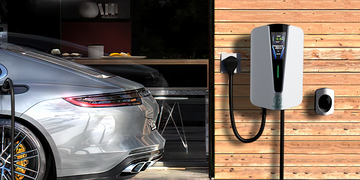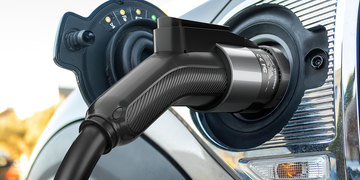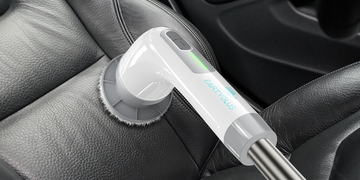What is a EV charger used for? An Electric Vehicle (EV) charger is used to recharge the battery of an electric vehicle. It provides electric power to the vehicle's battery, allowing it to store energy for driving. EV chargers come in various types and speeds, ranging from standard household outlets to fast chargers and high-power rapid chargers. The charging time depends on the charger type and the electric vehicle's battery capacity. EV chargers play a crucial role in supporting the adoption of electric vehicles by providing a convenient and efficient way to recharge their batteries.
What Is an EV Charger? Both electric vehicles and plug-in hybrid electric vehicles require an EV charger to keep the battery full, just like any chargeable device or electronic.
In recent years, the automotive industry has witnessed a significant shift towards sustainable and environmentally friendly transportation. Electric vehicles (EVs) have emerged as a key player in this transition, offering a cleaner and more sustainable alternative to traditional gasoline-powered cars. At the heart of the EV revolution is the Electric Vehicle Charger, a crucial component that facilitates the seamless integration of electric vehicles into our daily lives.
Understanding EV Chargers:
An Electric Vehicle Charger, commonly known as an EV charger, is a device designed to supply electric power to recharge the batteries of electric vehicles. Unlike conventional vehicles that rely on gasoline or diesel, electric vehicles store energy in rechargeable batteries, making it essential for EV owners to have access to charging infrastructure.
Types of EV Chargers:
EV chargers come in various types, each with its own charging speed and compatibility. The most common types include:
Level 1 Chargers:
These chargers use a standard household outlet (120 volts) and are suitable for overnight charging.
Convenient for residential use, but the charging speed is relatively slow.
Level 2 Chargers:
Typically found in public charging stations and residential settings.
Operates at 240 volts, providing a faster charging rate than Level 1 chargers.
Ideal for daily charging needs and can charge most EVs in a matter of hours.

DC Fast Chargers:
High-powered chargers designed for rapid charging in commercial locations.
Utilizes direct current (DC) and can charge an EV to 80% or more in a relatively short time.
Commonly used along highways and at fast-charging stations.
The Role of EV Chargers in Supporting Electric Vehicles:
Convenience and Accessibility:
EV chargers enhance the convenience of electric vehicle ownership by providing users with the flexibility to charge their vehicles at home, work, or public charging stations.
Promoting Adoption:
The availability of a reliable charging infrastructure is crucial in encouraging more people to make the switch to electric vehicles, addressing range anxiety concerns.
Reducing Environmental Impact:
By facilitating the use of clean energy sources for charging, EV chargers contribute to the overall reduction of greenhouse gas emissions and promote sustainable transportation.
Economic Growth:
The growing demand for electric vehicles and charging infrastructure fosters economic growth by creating jobs in manufacturing, installation, and maintenance of EV charging systems.
What is a EV charger used for? Electric Vehicle Chargers play a pivotal role in shaping the future of transportation. As the world increasingly embraces sustainable practices, the widespread adoption of electric vehicles, supported by a robust charging infrastructure, represents a significant step towards a cleaner and greener future. With ongoing advancements in technology and infrastructure, the EV charger is not just a device; it's a catalyst for change, powering the transition to a more sustainable and environmentally conscious mode of transportation.





